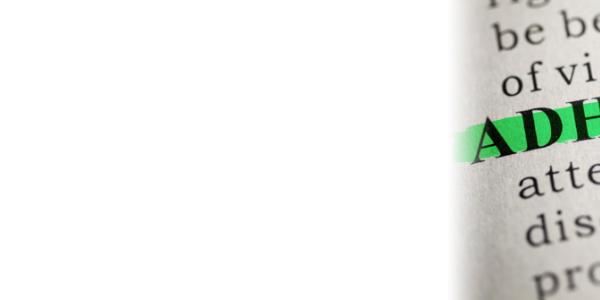
Individuals with ADD or ADHD have a difficult time paying attention and focusing, especially if they’re uninterested, are easily distracted, and can also be impulsive or disruptive. ADHD also includes the physical symptoms of hyperactivity or excessive restlessness. Other qualities associated include:
- Challenges with getting organized
- Trouble prioritizing activities
- Issues with managing time
- Inability to complete tasks
- Forgetfulness
- Trouble with planning
While the symptoms seen to be fairly straight forward, diagnosing ADD/ADHD can be complex. A person must exhibit a large number of symptoms that prove to cause significant problems with daily life, throughout their life, and in multiple settings. But getting a correct diagnosis is important, because when left untreated, ADD/ADHD can lead to:
- Problems succeeding in school
- Problems succeeding at work
- Relationship issues
- Increased driving citations and accidents
- Problems with overeating and obesity
What's more, other mental health conditions occur more often with ADD/ADHD, such as anxiety disorders, depression, and sleep disorders. The good news is that once a diagnosis is made, appropriate treatment can correct most or all of these issues. Treatments can include education, coaching, therapy, and medication. There are also lifestyle and behavioral adjustments that can help with symptoms such as reducing screen time, getting regular physical activity, limiting sugar consumption, and getting enough sleep.
If you believe that your child may have ADD or ADHD, schedule an appointment with your pediatrician. Adults with symptoms of undiagnosed ADD/ADHD should talk to their Primary Care Physician (PCP) to rule out other causes and determine next steps. If you don’t have a physician, we can help. Find a physician.
This article first appeared in the September 2016 edition of the HealthPerks newsletter.

